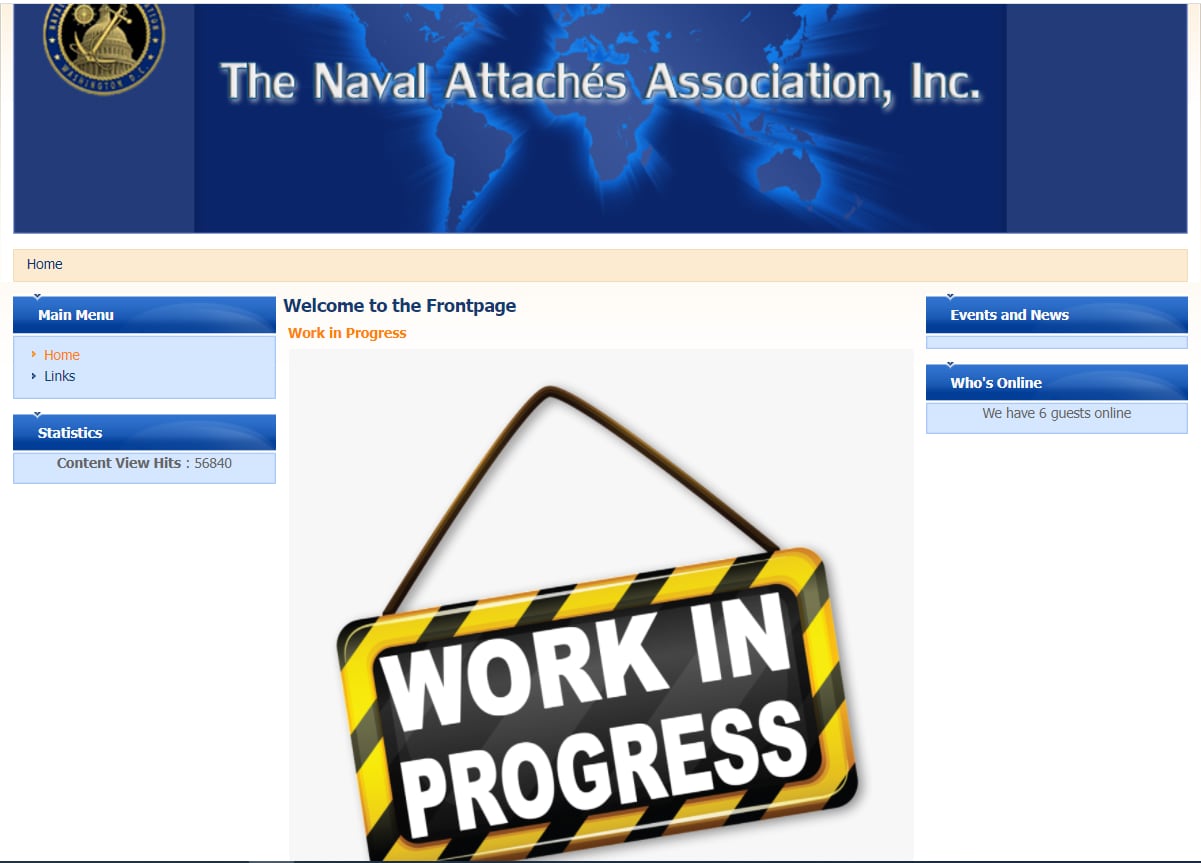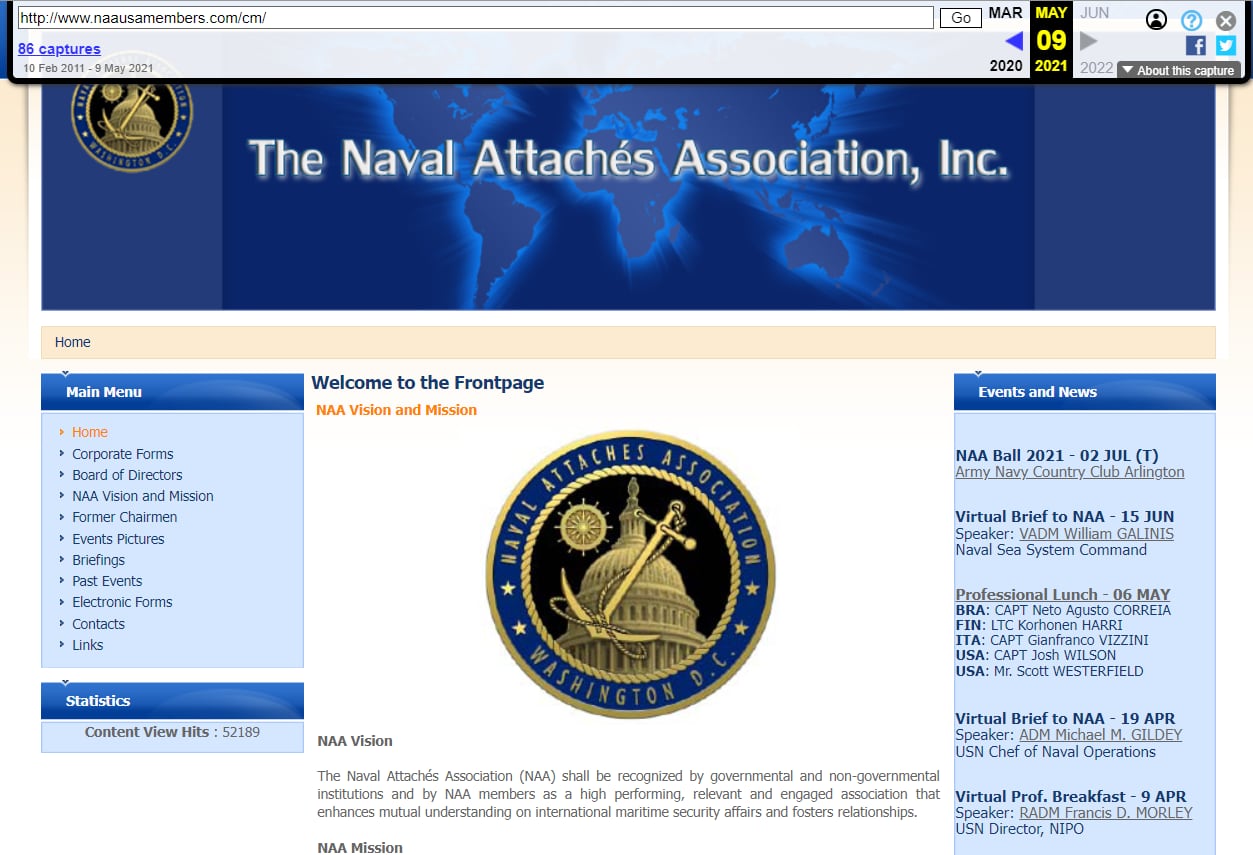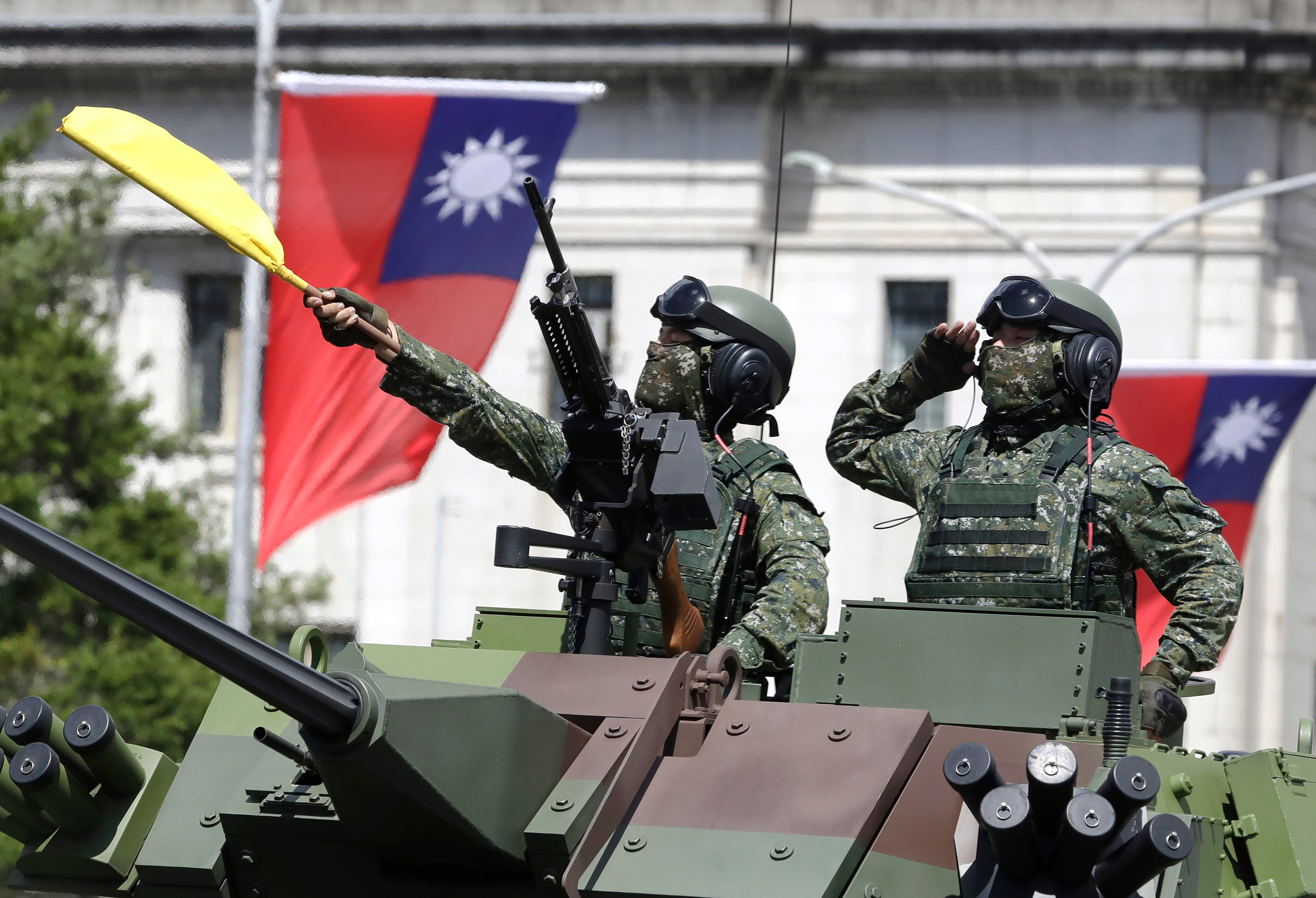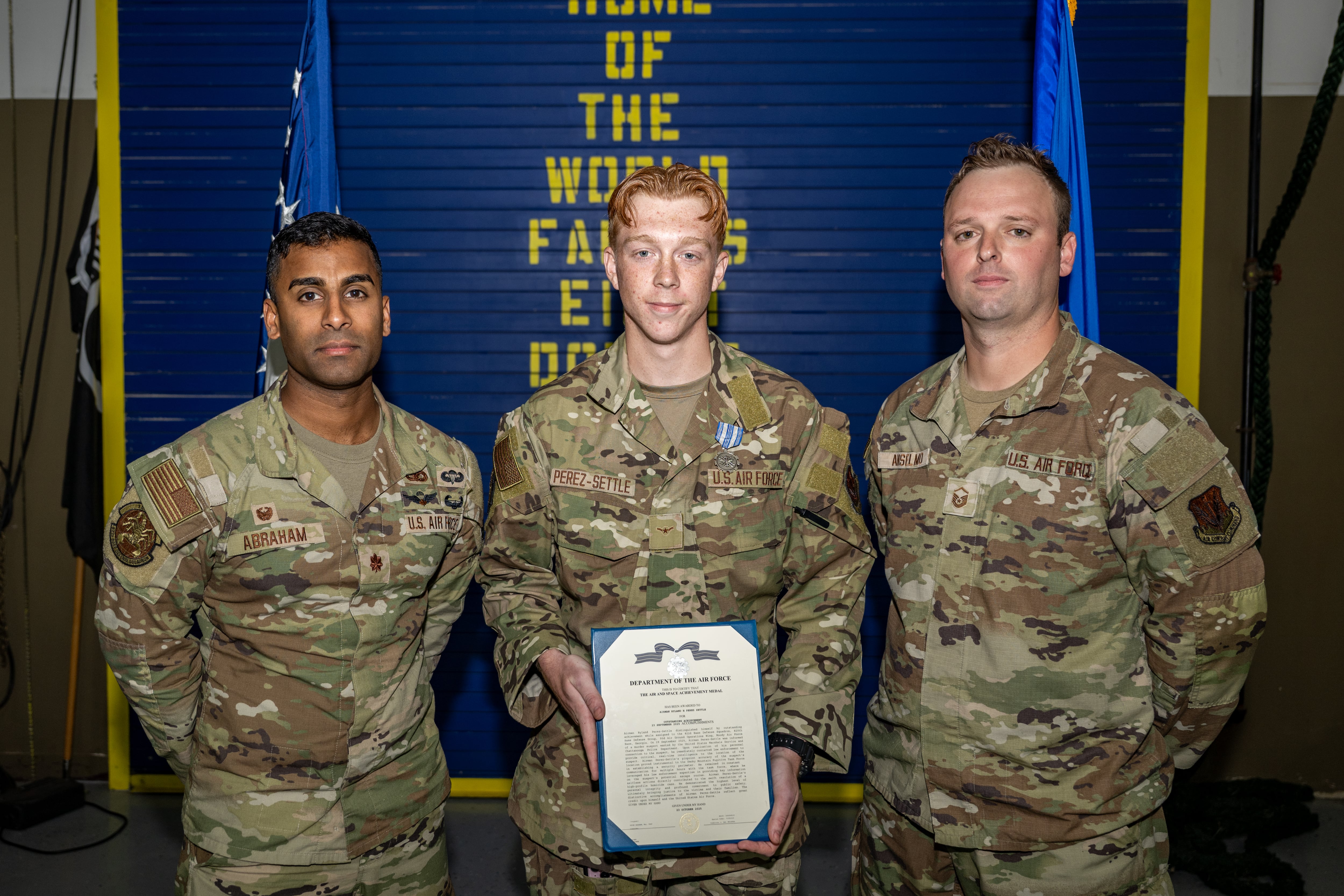The U.S. Navy cut ties with a nonprofit military association late last year after Chinese officials became enraged over Taiwanese military officers being invited to a pro-forma Beltway breakfast hosted by the group.
The diplomatic firestorm erupted over a Sept. 8 event put on by the private Naval Attachés Association, according to records and emails reviewed by Navy Times, the latest example of Beijing’s prickliness when it comes to the island.
In one email, a Chinese military officer warned a Pentagon official that it was “dangerous and could lead to many consequences, intended or not,” if U.S. officials didn’t step in and get the three Taiwanese officers disinvited from the event.
Another Chinese email, sent to association leadership, with several NAA members CC’d, warned that “there is no doubt that your military personnel in Beijing will be adversely affected” if Taiwanese officers attended the breakfast.
A few months later, on Dec. 28, Navy Secretary Carlos Del Toro banned Navy personnel from engaging with the NAA, a 501c8 fraternal society that brings together international naval attachés for breakfasts, talks and networking.
The NAA has ties to the Navy League of the United States, a premier sea service booster that is largely run by retired Navy brass.
“Recent actions by the People’s Republic of China (PRC) have complicated the Department’s ability to utilize the Naval Attaché Association (NAA) as a forum to facilitate partner access to senior DON leadership,” according to Del Toro’s message announcing the ban.
Navy officials did not respond to questions about what specifically prompted Del Toro’s ban, and the Chinese Embassy in Washington, D.C., did not respond to requests for comment by Navy Times’ deadline.
A defense official who requested anonymity to discuss the matter would only say the ban came after the Navy became aware “of a campaign by [China] to influence a board vote affecting the inclusivity of the NAA organization.”
NAA officials did not respond to repeated calls and emails seeking comment for this report, and it remains unclear if Taiwanese officials attended the breakfast.
Beijing’s “One China” principle contends that Taiwan is part of the mainland, not a separate country. Several U.S. presidents have walked a fine line of not formally recognizing Taiwan as an independent state while concurrently selling weapons to the island democracy.
China regularly expresses outrage over any Western outreach to Taiwan, and President Xi Jinping has dubbed his country’s quest to take control of Taiwan an “historic mission.”
U.S. military leaders have warned that a Chinese attack on the island could come within the next five years.
“It is outrageous to note that three Taiwan military personnel are invited and their names appear on the NAA list,” Chinese Senior Capt. Meng Zhang wrote to the current head of the association, Spanish Capt. Pablo Murga Gomez, in a Sept. 2 email that had other NAA members CC’d. “It is known that there is only one China in the world and Taiwan is part of China.”
“The incident has been reported back to Beijing, and your Embassies will be approached through diplomatic channels,” the senior captain wrote.
Gomez pushed back in an email the following day, writing that the NAA is a “private association that fosters relationships between its members with U.S. Department of Defense sea services,” and that it welcomes “any foreign officer” assigned to the Washington, D.C., area.
On Sept. 6, Chinese Senior Col. Ge Zhang emailed a senior U.S. Pentagon official, who is not identified in the emails reviewed by Navy Times, stating that “the U.S. has no official contact of any form with Taiwan and there are not official representatives from Taiwan whatsoever in the U.S.”
Meng pinged Gomez the following day and wrote that his absence from the Sept. 8 breakfast would be “a strong protest” against the presence of the Taiwanese officials there, calling it “a blunt violation for One-China principle.”
Ge emailed the senior Pentagon official on the same day, Sept. 7, and called the Taiwanese invite “a gross interference in China’s internal affairs, a severe violation of related international laws and norms, and a blunt political provocation against China.”
Ge argued that NAA is an official organization because U.S. Navy officers attend in an official capacity.
“The U.S. side keeps a blind eye on or even encourages the participation by Taiwan military personnel in the event exclusively open to military attachés from sovereign states,” Ge wrote. “This is absolutely double-faced and in violation of the basic norms of international relationship.”
The NAA’s website appeared to be hobbled Tuesday and featured little more than a dated-looking “Work in Progress” graphic on the home page.

An archived copy of the site features more content but does not list the September breakfast on its calendar.
But it does show several Navy leaders — including Chief of Naval Operations Adm. Mike Gilday -- as scheduled speakers for other events.
Navy officials did not respond to questions about whether Gilday and other brass attended NAA events in the past.

IRS filings show the NAA shares an address with the headquarters of the Navy League, a nonprofit advocacy group that is largely run by retired Navy brass.
The League’s current leadership includes Gilday’s predecessor as CNO, retired Adm. John Richardson.
Mike Stevens, former Master Chief Petty Officer of the Navy, the chief executive officer of the League, did not respond to repeated calls and emails seeking information about the NAA’s relationship with the organization.
Geoff is the managing editor of Military Times, but he still loves writing stories. He covered Iraq and Afghanistan extensively and was a reporter at the Chicago Tribune. He welcomes any and all kinds of tips at geoffz@militarytimes.com.
Meghann Myers is the Pentagon bureau chief at Military Times. She covers operations, policy, personnel, leadership and other issues affecting service members.





